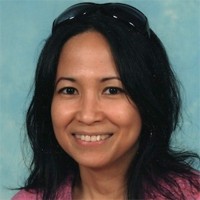Early on in American history, any non white male person pretty much equated to a non-entity. The Chinese faced discrimination in the West during the Gold Rush of 1849; the blacks endured slavery even after the Civil War; and women resigned themselves to daily life working around the home. Some women, however, fought the system. They became bulwarks of our history and accomplished more for women then they could have possibly imagined.
In 1825, one such woman came into being. Antoinette Louisa Brown, seventh of ten children, was born in Henrietta, NY. The family was an average American family and very religious. By the age of nine, Antoinette had announced her faith and joined the Congregational society. She went to school, as all children did, and then taught—as all women did—for two years before deciding to continue her education.
At Oberlin College, Antoinette studied literature. She graduated from the college in 1847. But literary courses were not enough. She wanted more. She wanted to study theology at the same institution. In 1847, not a single person would support her in the decision—not even the college.
Antoinette persisted. Finally, the faculty at Oberlin allowed her to attend lectures and accept offers to preach, but they would not grant her a degree or a license to preach when she’d completed the requirements. It was during this stint at Oberlin that Antoinette found herself involved in the Temperance movement and women’s rights. She began lecturing at different churches throughout New York, Pennsylvania, and Ohio speaking against slavery and advocating women’s rights.
The year 1853 held a lot of excitement for Ms. Brown. First, she was appointed as a delegate to the World’s Temperance Convention in New York. She was, however, a woman, and therefore met hostility when she tried to speak and was later expelled from the convention. On September 15 of that year, she accomplished something no other woman in America had been able to do—she was ordained as a pastor for the First Congregational Church in Butler and Savannah, New York—the first female minister of a recognized denomination in the United States.
She withdrew from her ministerial position in 1854, however, due to theological differences—she found difficulty in supporting the idea of Original Sin and Predestination. She aligned herself with the Unitarians and began working in the prisons of New York City.
If that were the end of Ms. Brown’s story, she would still be an amazing woman. But, it is far from the end. In 1856, Antoinette married a man that she had met in 1853 around the time of her ordination. His name: Samuel Blackwell. His significance: the brother of the first female to be granted a medical degree in the United States, Dr. Elizabeth Blackwell.
Antoinette and Samuel married and had seven children. Two died in infancy and of the five remaining daughters, two went on to become doctors and one became an artist. Antoinette gave up public speaking to rear her children. When the girls were older, she began to write and publish many books on philosophy and science.
She remained involved, however, in the women’s rights movements, speaking out against Elizabeth Cady Stanton’s position on divorce in 1860. She attended the first women’s rights convention after the Civil War in 1866 and helped to found the New Jersey Women’s Suffrage Association in 1867 with her sister-in-law, Lucy Stone.
In the 1870’s, Samuel Blackwell’s business ventures began to crumble and their finances began to sink. Antoinette began to travel the public speaking circuit, again, speaking for the American Women’s Suffrage Association and the National American Women’s Suffrage Association. In 1878, Oberlin College finally granted her an honorary Master of Arts for her work at the school. Antoinette continued her speaking engagements well into her 80’s. At many of the conventions, she was called upon to officiate or even preach.
Samuel Blackwell passed away in 1901, but Antoinette pressed on. In 1902, she officiated the funeral of none other than Elizabeth Cady Stanton. Still, she pressed onward. In 1906, she and Anne Fitzhugh Miller spoke before the Senate Committee on Women’s Suffrage in Washington, DC. In 1908, Oberlin granted her an honorary Doctorate of Divinity. That same year, she was asked to write President Theodore Roosevelt concerning his support of the women’s suffrage amendment and also founded the All Souls Unitarian Church in Elizabeth, NJ. She remained pastor emeritus there until her death in 1921.
The first female to be ordained in a recognized denomination in the United States did more than just pioneer religion. She pioneered women’s rights. At 95 years old, she was one of a very few pioneer-suffragists who voted in November of 1920. Antoinette Blackwell accomplished what many tried to affect. If it were not for her persistence—and the persistence of others like her—where would the American woman find herself today?
Sources: Winning the Vote
Distinguished Women

Printer Friendly Version

